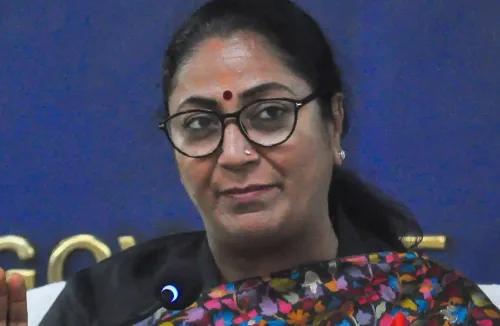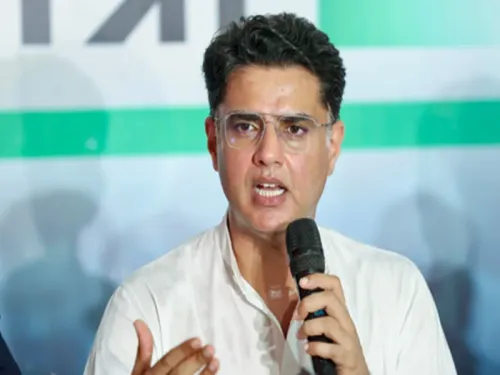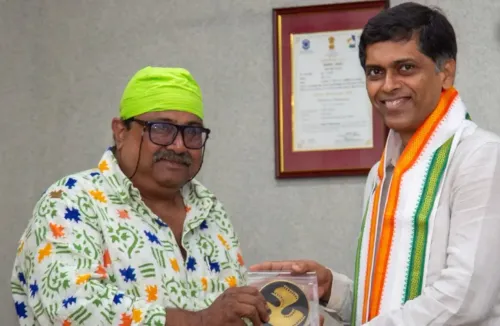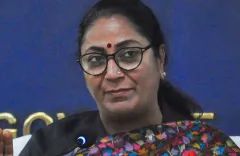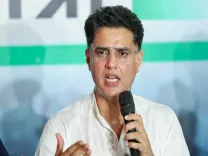Significant Advancements in India's Healthcare Sector in 2024
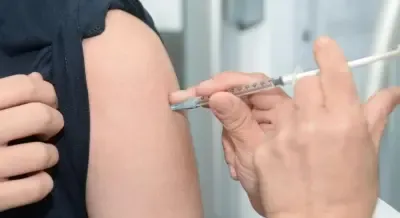
New Delhi, Dec 23 (NationPress) In 2024, India has made significant strides in the healthcare landscape, extending health coverage to all elderly individuals aged over 70, promoting cervical cancer vaccination among young girls, and reducing customs duties on essential cancer treatments, alongside improvements in various disease statistics.
The Union government maintained its focus on addressing non-communicable diseases while allocating considerable funds towards healthcare research.
For the fiscal year 2024-25, the Union Budget allocated a total of Rs 89,287 crore to the health sector, representing 1.85 percent of the overall budget expenditure. Although this figure remains below the 2 percent threshold established from FY18 to FY22, it has slightly increased from 1.76 percent and Rs 79,221 crore in the revised estimate for the previous fiscal year.
The budget also exempted customs duties on three vital cancer medications: Trastuzumab deruxtecan (for breast cancer), Osimertinib (an EGFR mutation lung cancer drug), and Durvalumab (for lung and biliary tract cancers).
Furthermore, the Goods and Services Tax (GST) rates for these drugs were reduced from 12 percent to 5 percent, and the maximum retail price (MRP) for these medications was lowered.
Additionally, the flagship health insurance initiative, Ayushman Bharat Pradhan Mantri Jan Arogya Yojana (PM-JAY), was expanded to include health coverage for all senior citizens above 70 years, regardless of their income.
The government has also focused on enhancing medical education and infrastructure. During his Independence Day address, PM Narendra Modi pledged to create 75,000 new medical seats in the next five years, increasing the existing number of over one lakh seats in the nation to reduce reliance on foreign medical education. In 2024 alone, 5,150 additional seats for MBBS courses were added.
Over two lakh Ayushman Arogya Mandirs have been established nationwide to promote early diagnosis and treatment. Additionally, more than 14,000 Jan Aushadhi Kendras have been launched, offering medicines at an 80 percent discount, significantly lowering treatment costs for low and middle-income families.
Moreover, in line with the vision of 'Swasth Bharat' (Healthy India) for 'Viksit Bharat 2047', the Ministry of Women and Child Development introduced the Rashtriya Poshan Mission to improve the nutritional status of children, pregnant women, lactating mothers, and adolescent girls.
Simultaneously, India's digital health framework has experienced significant advancements through the Ayushman Bharat Health Account (ABHA) initiative, providing a seamless means to access and share health records digitally. By December 22, over 71.81 crore ABHA numbers had been generated, with 46.53 crore health records linked to ABHA.
The Mission Indradhanush initiative successfully vaccinated 5.46 crore children and 1.32 crore pregnant women, offering protection through 11 different vaccines against preventable diseases. Additionally, the U-WIN portal was launched to digitize routine immunizations.
These initiatives have led to a notable enhancement in critical health metrics, including reductions in Maternal Mortality Ratio, Infant Mortality Rate, and Total Fertility Rate.
India has also received WHO certification for eliminating trachoma, a bacterial eye infection that can result in irreversible blindness, becoming the fourth country in Southeast Asia to achieve this milestone, following Nepal, Myanmar, and Pakistan.
A more efficient treatment regimen for tuberculosis was introduced under the National TB Elimination Programme (NTEP), reducing the treatment duration from 9-12 months to 6 months.
Additionally, the government has launched several health-related projects within the Ayush sector, witnessing an 8-fold growth in the Ayurveda manufacturing sector over the past decade. This progress has significantly boosted medical tourism, leading to the issuance of approximately 123 regular Ayush visas and 221 e-Ayush visas to international patients seeking treatment in India.

